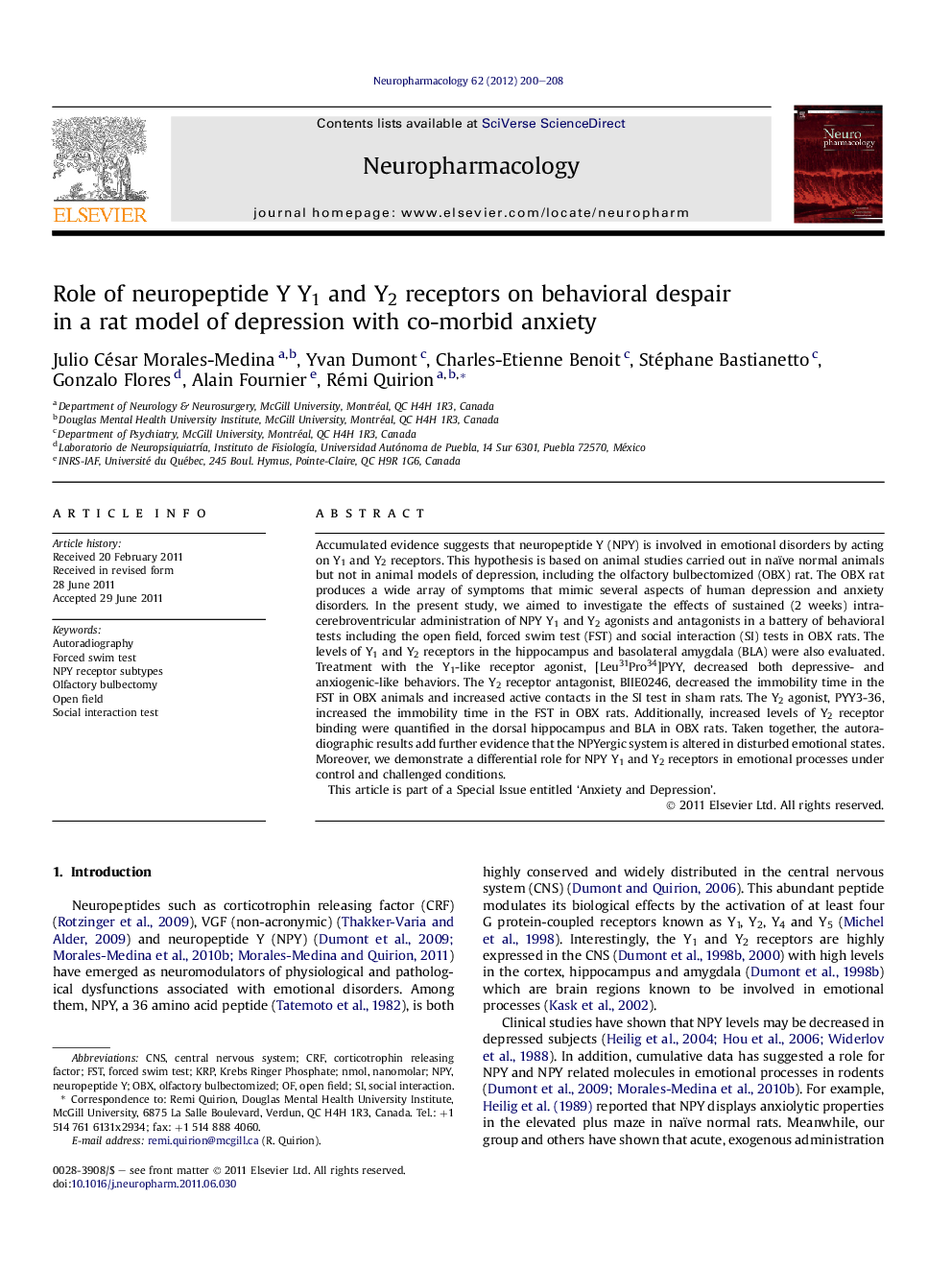| Article ID | Journal | Published Year | Pages | File Type |
|---|---|---|---|---|
| 5815521 | Neuropharmacology | 2012 | 9 Pages |
Accumulated evidence suggests that neuropeptide Y (NPY) is involved in emotional disorders by acting on Y1 and Y2 receptors. This hypothesis is based on animal studies carried out in naïve normal animals but not in animal models of depression, including the olfactory bulbectomized (OBX) rat. The OBX rat produces a wide array of symptoms that mimic several aspects of human depression and anxiety disorders. In the present study, we aimed to investigate the effects of sustained (2 weeks) intracerebroventricular administration of NPY Y1 and Y2 agonists and antagonists in a battery of behavioral tests including the open field, forced swim test (FST) and social interaction (SI) tests in OBX rats. The levels of Y1 and Y2 receptors in the hippocampus and basolateral amygdala (BLA) were also evaluated. Treatment with the Y1-like receptor agonist, [Leu31Pro34]PYY, decreased both depressive- and anxiogenic-like behaviors. The Y2 receptor antagonist, BIIE0246, decreased the immobility time in the FST in OBX animals and increased active contacts in the SI test in sham rats. The Y2 agonist, PYY3-36, increased the immobility time in the FST in OBX rats. Additionally, increased levels of Y2 receptor binding were quantified in the dorsal hippocampus and BLA in OBX rats. Taken together, the autoradiographic results add further evidence that the NPYergic system is altered in disturbed emotional states. Moreover, we demonstrate a differential role for NPY Y1 and Y2 receptors in emotional processes under control and challenged conditions.This article is part of a Special Issue entitled 'Anxiety and Depression'.
⺠The neuropeptide Y mediates emotional behaviors by modulating Y1 and Y2 receptors. ⺠Emotional behaviors were evaluated in the OBX model of depression. ⺠Y1 agonist decreases depression and anxiogenic behaviors in the OBX rat. ⺠Y2 antagonist acts as antidepressant in OBX and as anxiolytic in control animals. ⺠The Y1 and Y2 receptors have a differential role in emotional processes.
